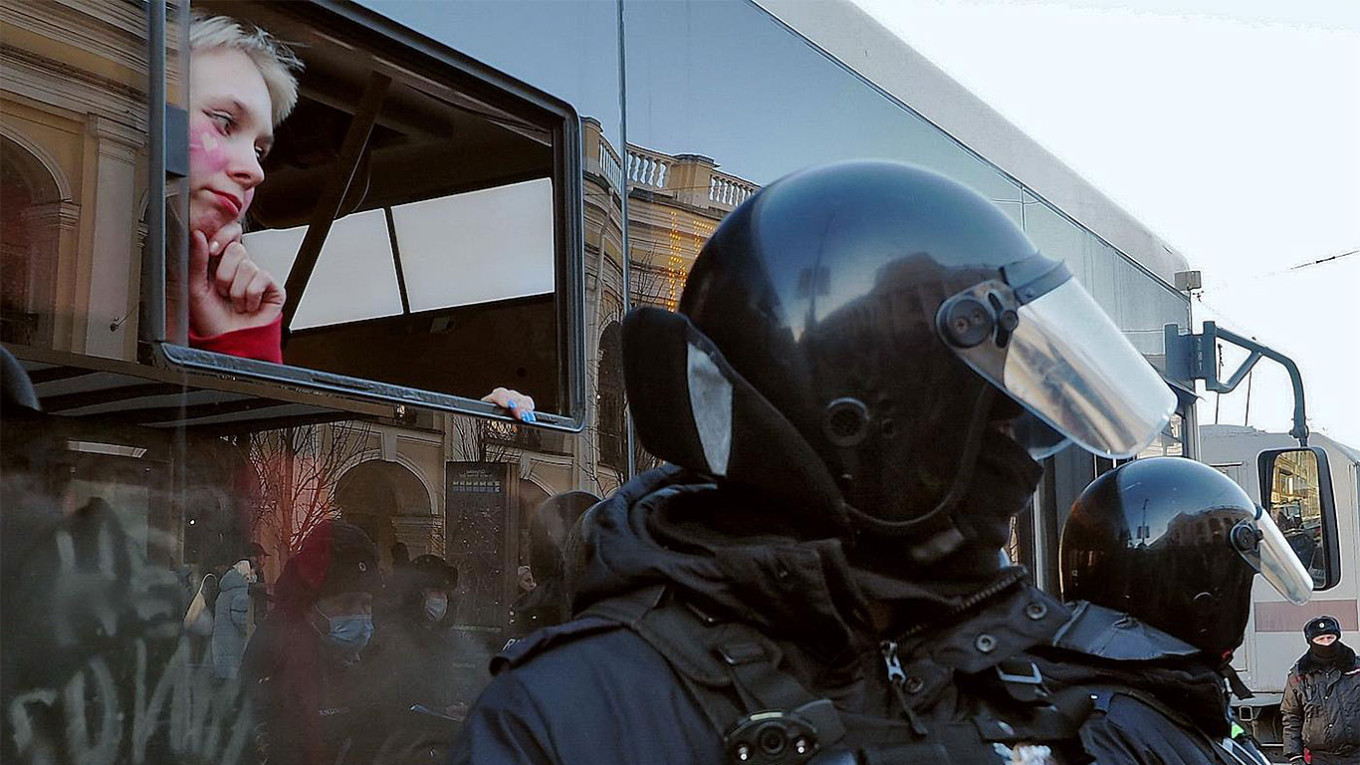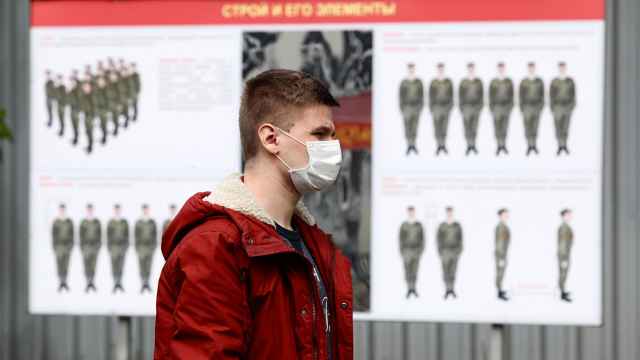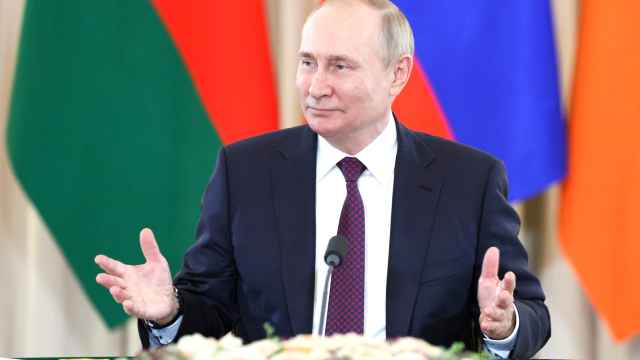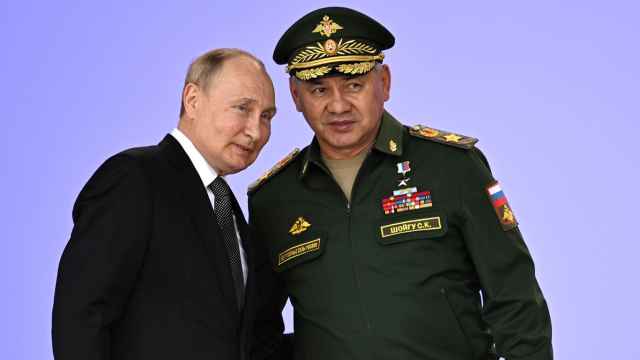The Kremlin is busy developing a new strategy to deal with the unprecedented recent wave of emigration that has seen hundreds of thousands of people decide to leave Russia.
In particular, the Kremlin has been enraged by statements from famous Russian actors and comedians using the freedom of exile to speak out against the war. The issue came to a head earlier this month when actor Artur Smolyaninov condemned the war in an emotional interview with Novaya Gazeta Europe. His words provoked an outpouring of anger from Kremlin-funded patriots who demanded new methods to deal with the war-related refugee wave now thought to number anywhere from 500,000 to 700,000.
Measures subsequently proposed by parliamentarians include the confiscation of all property in Russia and the cancellation of Russian passports — effectively, stripping exiles of Russian citizenship, a measure once used by the Soviet authorities against dissidents and writers such as Alexander Solzhenitsyn.
Russian activists and liberals have learned from bitter experience to closely follow events in Belarus, a time-proven testing ground for repressive measures. It was troubling therefore when on Jan. 5 the Belarusian dictator Alexander Lukashenko added a new tool to his long list of repressive powers by signing into law a provision allowing the state to strip citizenship from citizens in exile. The legislation takes effect in July.
The measure is not a mere expression of dictatorial frustration. It is highly effective and carefully designed. While the world has changed dramatically since the end of the Iron Curtain, exiles still need documents, and these days the red Russian passport is the only piece of paper most Russian refugees, including activists, journalists, and IT entrepreneurs have at their disposal. Applying for political asylum is a difficult, time-consuming, and cumbersome process.
Confiscation of property and citizenship termination are not the only measures under consideration. Former Russian President Dmitry Medvedev, now the deputy head of Russia's Security Council, made his public contribution to those he described as "traitors who have gone over to the enemy and want their Fatherland to perish" and "pieces of shit who until recently considered themselves to be among the so-called intellectual elite."
In a Telegram post, he advocated acting "according to the rules of wartime," citing Russia's experience in World War II. "In times of war, there have always been special rules and quiet groups of impeccably inconspicuous people who effectively enforce them."
This language is clear to any Russian. The deputy head of the Security Council has called for the use of death squads against those Russians who have left the country but remain politically active.
Medvedev has posted increasingly extreme diatribes attacking the West since the invasion of Ukraine started, but this is the first time a high-level Russian official has openly called for the use of assassins to deal with Kremlin critics.
It’s true that the Russian security services have a very long record of killings abroad, but officially the Kremlin claims that the only targets are "terrorists" who are described as legitimate targets for extrajudicial death sentences. That’s now changing.
Yet at the same time, there is a part of the recent emigration wave that the Kremlin is very keen to entice back. Maksut Shadayev, the head of the Digital Development Ministry, a young and apolitical official in Vladimir Putin’s government, oversees the development of Russian substitutes to replace sanctioned Western technologies. As part of his mission, he wants to get Russian IT specialists who fled abroad to protest the invasion and avoid mobilization to return to Russia.
That mission became almost impossible after the country mobilized all men aged 20 to 50 in September, prompting around 100,000 IT specialists to leave Russia. Even before the mass exodus, Russia was already 1 million IT specialists short, according to the government’s own assessment.
The digital minister’s team is working feverishly on a strategy to lure them back. The government’s desperation is indicated by the package on offer, including the promise of deferment of the military draft, cheap mortgages, and even free plane tickets to Russia, all paid for by the taxpayer. Many of the departees are still working remotely for Russian companies despite being abroad, meaning that they are still dependent on Russian rules, something Moscow views as a weakness that can be exploited.
Since December, the IT industry has been buzzing with rumors that the option to work from abroad might soon be banned. That same month, the Russian tech giant Yandex asked its employees to start working from the company's offices again, including those who had left the country. In January, VK, the Russian tech giant that controls most Russian social media platforms, instructed employees working from abroad to return home or be fired.
IT professionals are only the most visible part of this new war-related wave of emigration, which is easily the biggest Russian exodus of the 21st century.
The strategy towards Russians abroad is still being developed, but what is emerging seems to draw inspiration from the age of Stalin. No longer does Putin refer to emigration as a de-toxification of Russian society.
Those with technical skills deemed of use for the war effort and the survival of the Russian state at large, are to be lured back with perks and protection. Those in exile who stood against the Kremlin and the war, fall into a special category — the Kremlin wants them to feel the crosshairs on their backs.
This article was first published by The Center for European Policy Analysis.
A Message from The Moscow Times:
Dear readers,
We are facing unprecedented challenges. Russia's Prosecutor General's Office has designated The Moscow Times as an "undesirable" organization, criminalizing our work and putting our staff at risk of prosecution. This follows our earlier unjust labeling as a "foreign agent."
These actions are direct attempts to silence independent journalism in Russia. The authorities claim our work "discredits the decisions of the Russian leadership." We see things differently: we strive to provide accurate, unbiased reporting on Russia.
We, the journalists of The Moscow Times, refuse to be silenced. But to continue our work, we need your help.
Your support, no matter how small, makes a world of difference. If you can, please support us monthly starting from just $2. It's quick to set up, and every contribution makes a significant impact.
By supporting The Moscow Times, you're defending open, independent journalism in the face of repression. Thank you for standing with us.
Remind me later.










